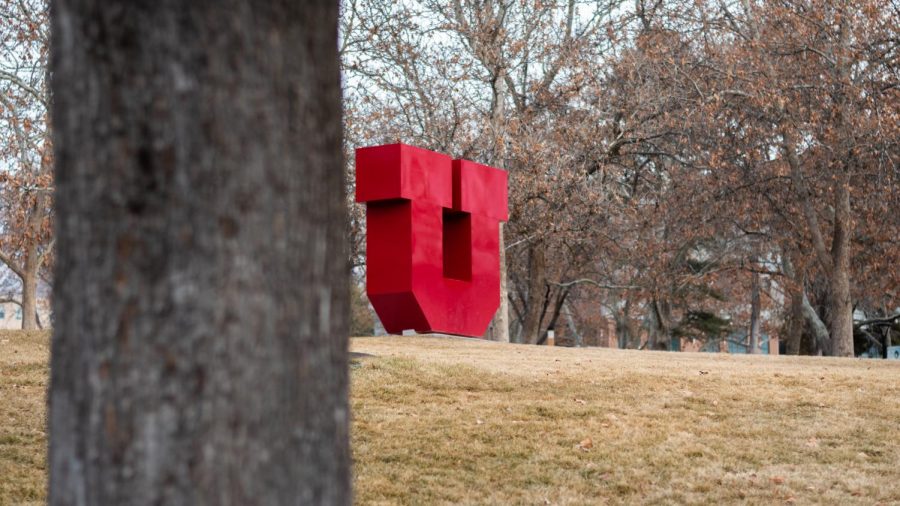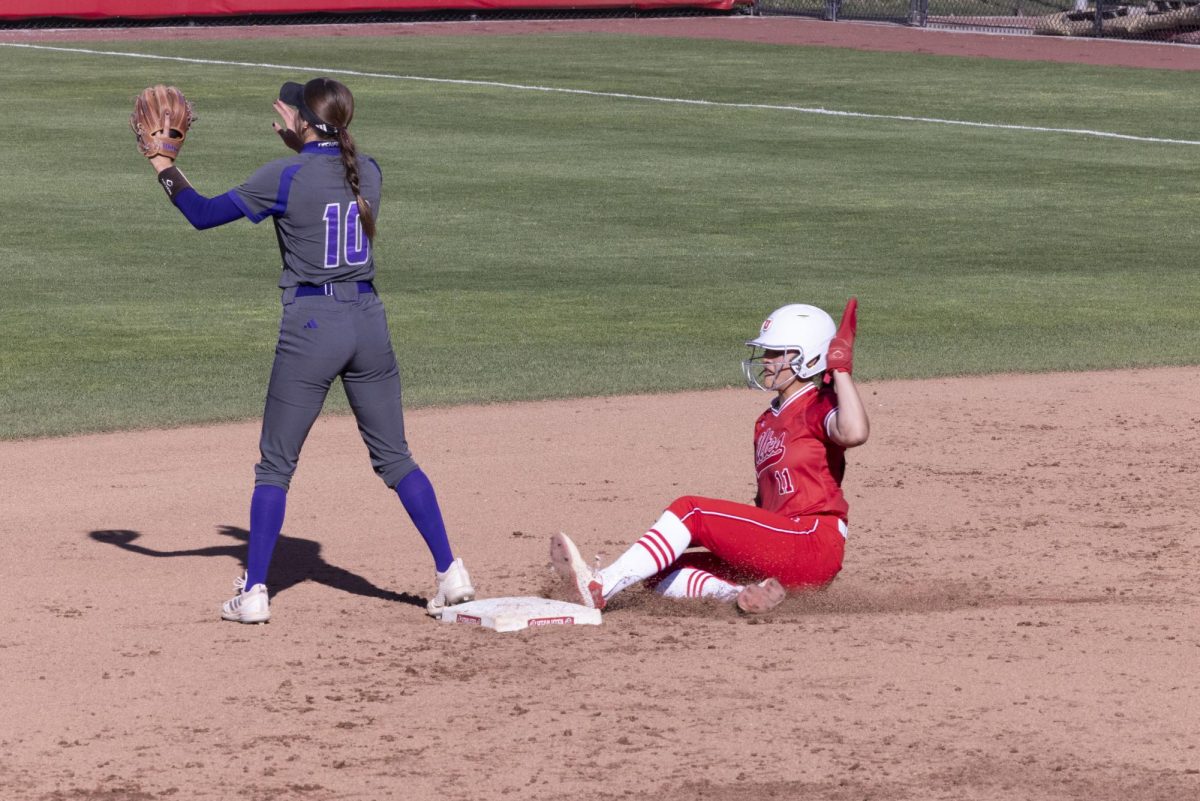Banned Books Week — Let’s Keep Our Shelves Controversial
A stack of formerly banned books available at the Marriott Library. (Photo by: Justin Prather | The Utah Chronicle).
September 23, 2019
Welcome to Banned Books Week across the country — a celebration and observation of literary censorship. From Sept. 22 through Sept. 28, people all over our nation are speaking out against censorship and drawing attention to the ongoing controversy of banning books. The Marriott Library kicked off the celebrations here at the University of Utah with a book reading just this last week, but there will be plenty of festivities going on this week for any who missed it. Another reading will take place Sept. 24 from 11 a.m. until 1 p.m. on the second floor of the library, and yes, there will be treats again. Displays will hold all manner of books that have been banned or challenged throughout history for students to explore. To cap it all off, the library will be holding a scavenger hunt all week. Stay in touch with the library’s social media page for clues, because the winners will receive a free copy of one of the American Library Association’s top eleven banned books from 2018.
America makes a big deal about freedom, especially when it comes to the freedom of speech guaranteed in our First Amendment. At this moment, there are protestors in Hong Kong waving American flags and singing our national anthem as they fight for their fundamental democratic freedoms. Historically, however, America has struggled to clearly define this concept of free speech and defend it, especially when it comes to popular media. Just look into the notorious Hays Code in cinema, the history of the rating systems for film, television and video games and the ongoing debate surrounding hate speech. Every single year, countless complaints are filed in an attempt to challenge books — both new, modern releases and classic literature — and some of these attempts even result in the books being pulled from the shelves of libraries and classrooms.
“It’s important that we keep censorship down,” said Heidi Brett, Marketing and PR Director at the Marriott Library. “If we’re not getting every piece of information that comes out — whether it be a novel or nonfiction — we are missing out on our freedom.” These are the stakes highlighted by this week’s campaign, but this fight against censorship never stops. Those people who complain about the content of a book often bring up reasonable-sounding concerns. Commonly, they don’t agree with the themes and messages within and argue that they don’t want their children to be exposed to it. But the American Library Association argues, “Librarians and governing bodies should maintain that parents — and only parents — have the right and the responsibility to restrict the access of their children — and only their children — to library resources.” In short, feel free to control what you and your family read, but nobody should be permitted to dictate what books are available to everyone else.
In the almost nineteen years Brett has been with the Marriott Library, she has never seen a book be pulled from the shelves due to controversy. For the rest of our state, the track record doesn’t look quite as good. Davis County elementary schools pulled “In Our Mother’s House” in 2013 after facing challenges over its depictions of homosexuality. Libraries in Washington County came under fire for censoring LGBTQ displays in 2017.
Controversy not only opens the conversation for different fields of thought, but offers opportunities for growth, perspective and knowledge. When it comes to books, our most basic and oldest form of knowledge, it’s not far-fetched to understand why censorship can be so detrimental. “That’s why we have Banned Books Week,” said Brett. “[It’s] to raise awareness about the fact that there is censorship that still goes on in our country.”
c.payne@dailyutahchronicle.com












